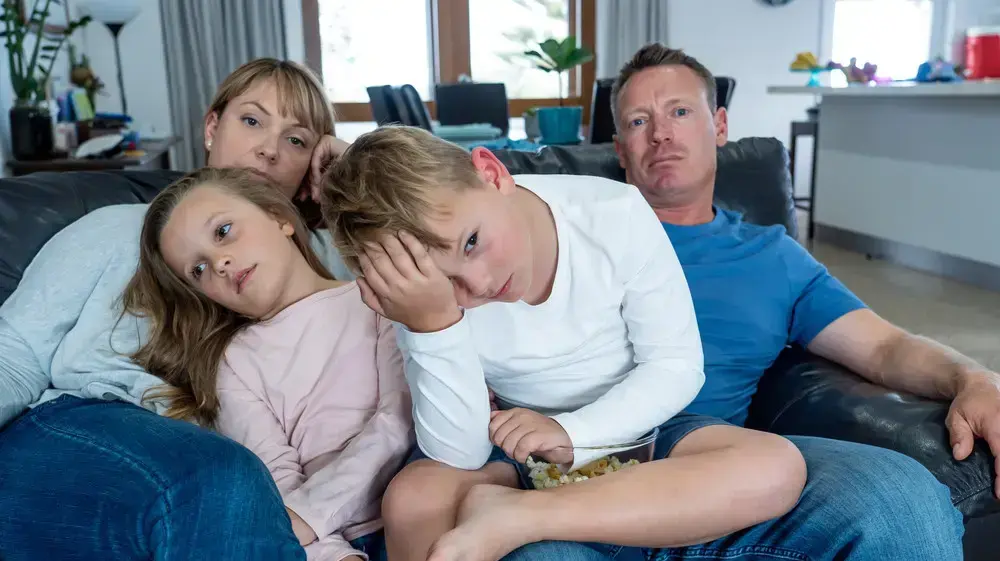Business
news
Think you suffered in closures?
Your boss probably suffered more
Global research: Senior executives have faced more mental difficulties in the face of the global epidemic than their employees.
The young workers felt more worn out than others.
And who was hit the hardest?
Tags
Working from home
David Rosenthal
Tuesday, 16 February 2021, 15:51
Share on Facebook
Share on WhatsApp
Share on general
Share on general
Share on Twitter
Share on Email
0 comments
The mental health challenges created by the corona plague affected employees differently, depending on the job, age group and location, according to a new study by Oracle and Workplace Intelligence, a human resources consulting and research firm.
The study, which involved more than 12,000 employees, department heads, human resources managers and senior executives in 11 countries, found that senior executives, more than their employees, had difficulty adapting to new working conditions, that young people felt more eroded than others, and that in India, In China and the US more workers have reported that the epidemic has adversely affected their mental health.
More on Walla!
NEWS
Pass the corona with lots of passion - for hot cylindrical chickpeas
To the full article
Principles of the study
The corona plague has affected workers differently, depending on the job, age group and country
Senior executives had more difficulty than their employees adapting to remote work
Generation Z and millennial workers feel more worn out than others
Workers in India, UAE, China and the US have been hit hardest in terms of mental health at work
Yes, it was not easy for anyone (Photo: ShutterStock)
Senior executives have more difficulty working remotely
Senior executives have had the most difficulty adapting to the reality of working from home, and have reported more mental health issues compared to their employees, but they are also the most open to leveraging artificial intelligence (AI) technology to overcome the difficulties.
Senior executives have more difficulty working remotely
Senior executives (53%) struggled with mental health difficulties in the workplace more than their employees (45%).
Senior executives also had the most difficulty adapting to the virtual lifestyle, with 85% reporting difficult challenges working remotely, including collaborating with teams virtually (39%), increased levels of stress and strain (35%) and lack of workplace culture (34%).
Compared to their employees, senior executives were also 29% more likely to have difficulty learning new technologies for teleworking.
However, compared to their employees, after adjusting to the new reality, senior executives were 26% more likely to improve productivity.
Senior executives have shown the greatest openness to using AI to help with mental health: compared to 61% of employees, 73% of senior executives prefer to talk to a robot (e.g. chatbot programs and digital assistants) about their mental health, rather than to a human.
Senior executives are 23% more likely to see the benefits inherent in AI, compared to their employees.
80% of senior executives indicated that AI has already helped their mental health at work.
Generation Z and the millennial generation are working harder, suffering more and looking for AI-based solutions
Younger workers feel more burnout due to the effects of the epidemic on mental health, and are more open to using AI-based solutions.
Of all the generations, Generation Z has the highest chance of being harmed by the effects of the plague.
Nearly 90% of Generation Z workers said the corona adversely affected their mental health, and 94% indicated that mental stress in the workplace also affects their lives at home.
Compared to veteran workers (Baby Boomers), Generation Z workers are twice as likely to work overtime during the epidemic, and millennials are 130% more likely to experience burnout.
The younger generations are more open to turning to robots for support: Generation Z employees are more likely to have 105% more conversation about stress and anxiety in the workplace with a robot, rather than with their supervisor, compared to older workers.
84% of Generation Z and 77% of millennials prefer to use robots over humans in mental health issues.
Generation Z employees are 73% more likely to benefit from AI at work compared to senior employees: 90% of Generation Z say AI helps their mental health at work, and 93% want the companies they work for to provide technology to support health The mental.
Workers in different countries experience completely different realities
Just like the corona virus, the mental health crisis has affected people around the world differently.
People in India and China are hardest hit, and show the highest openness to AI-based support, while workers in Italy, Germany and Japan are less affected.
In India (89%), UAE (86%), China (83%) and US (81%) the most workers reported that the epidemic adversely affected their mental health. Workers in China (43%) and India (32%) also experience The highest attrition from overtime as a result of the epidemic.
In Italy, the lowest figure was reported of people experiencing a negative impact on their mental health due to the epidemic (65%).
Employees in Germany are the least likely to report 2020 as the most stressful year in the workplace (52%).
29% of people in Japan say they have never experienced difficulties in working remotely or collaborating with teams virtually.
In contrast, 96% of people in India admit that they have found it difficult to keep up with the technological advancement in the workplace.
People in China (97%) and India (92%) show the greatest openness to using a robot as a counselor or therapist.
People in France (68%) and the UK (69%) show the greatest hesitation to do so.
Compared to their counterparts in other countries, people in India and China are 33% more likely to talk to a robot: 91% of workers in India and 91% of workers in China prefer to talk about stress and anxiety levels when working with a robot over their supervisor.
Despite the demographic differences, people need help from their employers.
It's time to demonstrate leadership
Regardless of role, age group, and demographic differences, there is a consensus among people around the world: the epidemic has adversely affected the mental health of the global workforce - and they need help.
78% of workers say the plague has harmed their mental health.
76% of people believe that the society in which they are employed should do more to protect their mental health.
83% would like the company to provide technology to support their mental health.
Assimilation of technology - a priority for every business.
Gili Schlesinger (Photo: Oracle)
"Deepening the differences between different demographic and geographic groups floods the significant impact of the epidemic on the mental health of workers in different age groups, roles and regions," says Dan Schawbel, managing partner at Workplace Intelligence. "Despite the challenges the epidemic has created, companies can take advantage of this moment as a catalyst for positive organizational change. While the epidemic illustrated the vital need for companies to start protecting the mental health of their employees, the efforts companies are investing now will continue to produce happier, healthier and more involved employees for many years to come. forward."
"The epidemic has targeted the mental health of workers, but research also shows that it has increased employers' willingness to implement solutions, including technologies such as AI. Such systems are already integrated into Oracle's human resources solutions serving leading customers in Israel," said Gili Schlesinger, division manager. Enterprise in the SaaS division of Oracle Israel. "The way the epidemic has changed our work routine more easily provokes burnout, stress and other mental health issues. Each has been affected differently, and the solutions each company provides to its employees should reflect the unique challenges of employees. But in general, the findings illustrate that the implementation of Technology to improve mental health among employees should be a top priority for every business. "
Share on Facebook
Share on WhatsApp
Share on general
Share on general
Share on Twitter
Share on Email
0 comments





